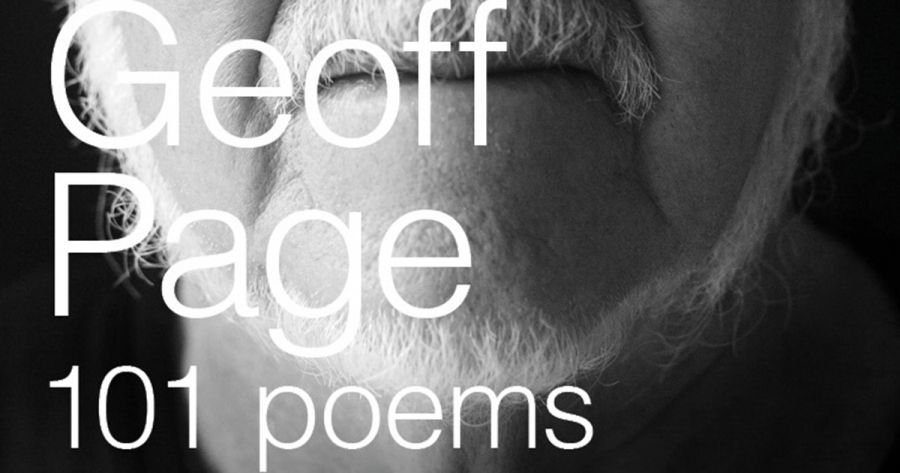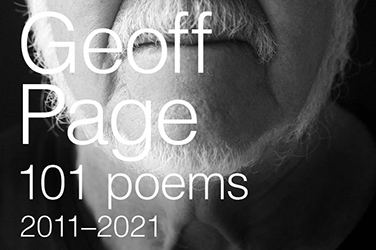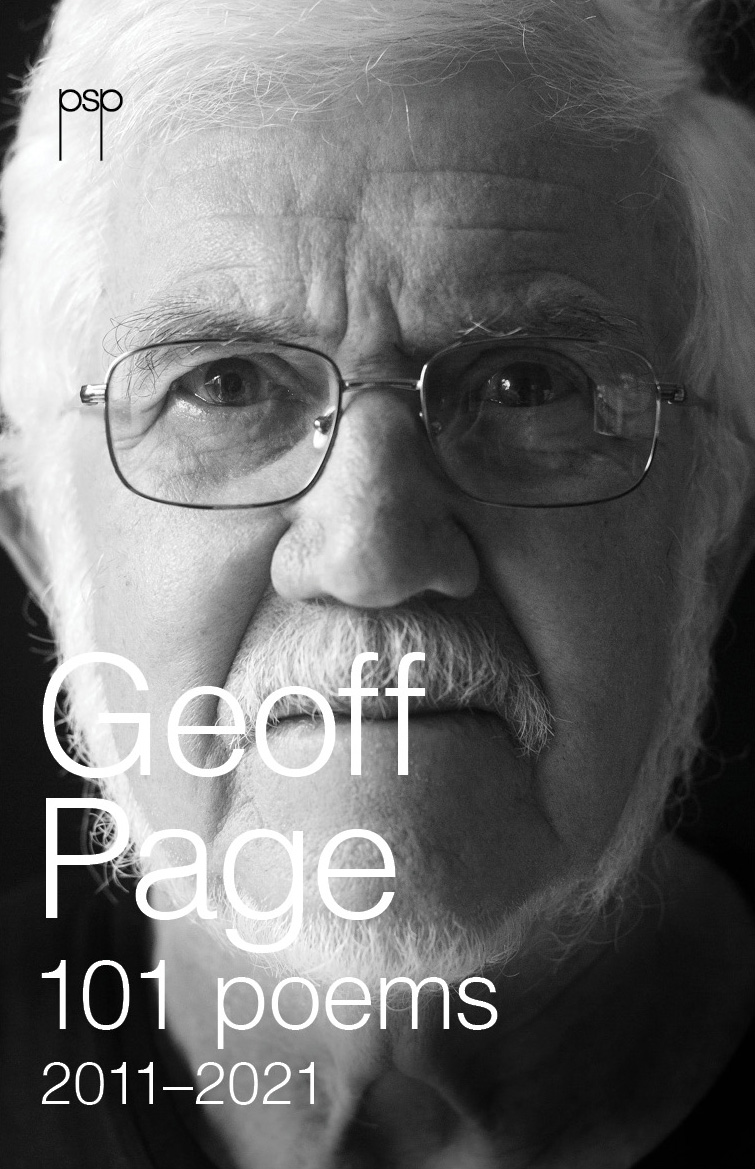
- Free Article: No
- Contents Category: Poetry
- Review Article: Yes
- Article Title: Humour and humanity
- Article Subtitle: A new selection of Geoff Page’s poetry
- Online Only: Yes
- Custom Highlight Text:
Pitt Street Poetry is a fine and well-established poetry publisher. However, its 101 Poets series is a somewhat puzzling phenomenon. It was started in 2016 and, according to the publisher’s website, aimed to be ‘a new series of selected poems … bring[ing] together the best work of Australia’s leading poets as collectable, definitive editions’. Yet, in eight years, it has only included volumes by John Foulcher, Anthony Lawrence, Geoff Page, and Ron Pretty. These are established figures, but they do not constitute a broadly representative sample of Australia’s leading contemporary poets.
- Featured Image (400px * 250px):

- Alt Tag (Featured Image): Paul Hetherington reviews '101 Poems: 2011–2021' by Geoff Page
- Book 1 Title: 101 Poems
- Book 1 Subtitle: 2011-2021
- Book 1 Biblio: Pitt Street Poetry, $32 pb, 208 pp
- Book 1 Cover Small (400 x 600):

- Book 1 Cover (800 x 1200):

Page has previously commented on the influence on his work of the prosody of the American poet William Carlos Williams (1883–1963), and he refers to Williams’s influence again in the poem ‘Ah!’ in this volume. In his mixing of iambic tetrameter and trimeter, Page’s work also shows the influence of the traditional ballad form. However, he generally eschews the ballad’s regularity, his poems often conveying an improvisational air more allied to jazz rhythms than conventional iambics. Indeed, the first poem begins: ‘I like the jazz in coffee bars / half-heard over steam and cream / the rough percussion of the grinder.’ The rhythmic variety and occasional informality of such writing is generally a strength, although sometimes it results in lines that are neither comfortably iambic nor entirely relaxed.
The achievement of the poems in this volume is considerable. Page’s writing is almost always clear and thoughtful, acknowledging human and societal complexities rather than choosing didacticism or easy positions. For example, when he condemns the public execution of the raped thirteen-year-old Aisha Ibrahim Duhulow by the Al-Shabaab militant group in Somalia in the poem ‘Twenty-one Questions’, he does so systematically and persuasively, avoiding the clichés of many poems about atrocity. Poems like this one are a form of witnessing from a distance as they reflect on the cruelty of extremism in other parts of the world. They do not give the reader much that is new, but they assert a sometimes cautious liberal and humanist ethics that, for Page, constitutes a significant part of what his poetry values.
Page also regularly considers the ways in which the smaller foibles of humanity are meshed, sometimes discrepantly, with larger life-and-death issues or important socio-political currents. In ‘Americans Are So Polite’, for instance, he observes how ‘a young black woman, seen on You Tube, / pulled over for a missing light, // is saying by her boyfriend’s body: / “You shot four bullets into him, Sir.”’ This poem’s emphasis on the gap between the words spoken and the grave matters they connote is a protest against police violence directed at African Americans,
and also draws attention to the absurdities of much human conduct, especially when relationships involving power are in play.
More generally, many of poems have the air of closely attentive occasional writing. They comment on history, society, contemporary mores, eighteenth-century predilections, the life and death of Saddam Hussein, Australia’s treatment of refugees, nineteenth-century poets, racism, mortality, and so on, demonstrating Page’s broad interests in issues of social and political justice and the currents of history and literature. A good number consider aspects of the ageing process, and there is genuine poignancy in many of these works. Relatively few poems address intimate personal relationships, or elusive or tender feelings, because most of them understand people through the retailing of action, circumstance, and events.
There is a significant strand of acerbic or mordant humour in these poems, along with a satirical bent, that frequently sees them veer toward social critique, and which, in leavening many of the poems, grants the volume a sense of buoyancy. One of Page’s most beguiling forms of seriousness is the use of wry observations that encapsulate more than they directly utter – whether he is sceptically considering his relationship with God from a questioning agnostic’s point of view, or his complex relationship with his mother. One work begins with the lines, ‘My mother doesn’t ring so often … now she’s five years dead / offering ideas for poems … restless in her head’, affirming with dry humour the importance of this relationship to Page’s poetry.
Poetry is one of the main preoccupations of the final group of ‘uncollected poems’. There are works about Les Murray, Michael Dransfield, and Cesár Vallejo, as well as a poem that considers fifteen well-known North American poets. This seems especially appropriate for a writer whose own beginnings lay partly with the writing of William Carlos Williams, and who taught literature for decades. Page asserts in ‘Ah!’ that we find our voice as poets partly through acquiring the voices of other poets, and there is no doubt that this volume demonstrates his mastery of his own preferred forms of utterance, ranging persuasively and often entertainingly over diverse contemporary and historical matters.


Comments powered by CComment